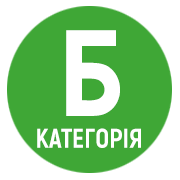ВИКОРИСТАННЯ МЕТАПРЕДМЕТНОГО ПІДХОДУ У ВИКЛАДАННІ ІНОЗЕМНОЇ МОВИ В УМОВАХ ВИЩОЇ ШКОЛИ
DOI:
https://doi.org/10.32689/maup.philol.2022.1.3Ключові слова:
навчання іноземній мові, метапредметний підхід, метакомпетенції, метакомпетентність, м’які навички, метапредметні технології, вищій навчальний закладАнотація
Метапредметність виступає як умова розвитку особистості студента та досягнення ним високої якості освіти. Розвиток особистості відбувається за допомогою формування універсальних навчальних дій, основою освітнього й виховного процесу. Мета статті – вивчити та проаналізувати питання реалізації метапредметного підходу у системі навчання іноземній мові майбутніх фахівців в умовах вищої школи, виділити методи та технології формування метакомпетенцій майбутніх фахівців у контексті викладання іноземної мови у вищому навчальному закладі. Реалізація поставленої мети передбачає вирішення наступних завдань: 1) опрацювати поняття «метакомпетенціі», «метапредметні компетенції», «надпрофесійні компетенції», «м'які навички»; 2) виявити типи метакомпетенцій. Наукова новизна. У роботі представлена необхідність формування цілісного світогляду студентів на основі метапредметної інтеграції. Компетентнісна основа професійної підготовки у системі вищої освіти передбачає формування у випускників вищих навчальних закладів сукупності професійних та надпрофесійних, або метакомпетенцій, а також м'яких навичок. М’які навички не є професійними компетенціями, але полегшують їх власникам входження у професію та створюють сприятливі умови для здійснення професійної та міжособистісної комунікації, набуття нових знань, розвитку навичок аналітичного, критичного, творчого мислення тощо. У висновках зазначено, що метапредметний підхід в освіті сприяє розвитку культури мислення та формування наукового світогляду у студентів, яким надаються великі можливості для використання отриманих знань на заняттях в реальних ситуаціях. Навчальна дисципліна «Іноземна мова» дозволяє створювати умови для досягнення широкого спектра метапредметних компетенцій. Більш того, завдяки загальногуманітарної спрямованості, іншомовне навчання забезпечує широкими можливостями не тільки для вивчення мови, а й для включення спеціальної інформації, яка необхідна майбутнім випускникам вишу для професійної самореалізації.
Посилання
Азарова Л. Н., Кривова В. А. О диагностике метапредметных компетенций у первокурсников высших образовательных заведений. Теория и практика общественного развития. 2015. № 10. С. 220–223.
Гатулин Р. Р. Проблемы формирования надпрофессиональных компетенций у студентов вуза. Инноватика-2016 : сборник материалов ХІІ Международной школы-конференции студентов, аспирантов и молодых ученых. Томск : STT, 2016. С. 432–435.
Обдалова О. А. Когнитивно-дискурсивная система обучения иноязычной межкультурной коммуникации студентов бакалавриата естественнонаучных направлений : дисс. … доктора педагогических наук : 13.02.2017. Нижний Новгород.
Руденко А. П. Дискурсивная компетенция как основа обучения иностранному языку в вузе. Вестник Новгор. гос. ун-та. Сер. : Педагогика и филология. 2007. № 41. С. 81–85.
Brown R. B. Refrain the competency debate: Management knowledge and meta-competence in graduate education. Management Learning. 1994. Iss. 25(2). P. 289–299.
Bryntseva O. V. Foreign languages as means of students’ professional mobility development. Педагогіка формування творчої особистості у вищійй і загально-освітній школах : збірник наукових праць. Запоріжжя : КПУ, 2020. № 68. Т. 1. С. 212–216.
Mathews J. A. Greening of Development Strategies. Seoul Journal of Economics. 2013. Vol. 26. No. 2. P. 147–172.
Morpurgo M. T. Beyond Competency: the Role of Professional Accounting in Education in the Development of Meta-competencies: dissertation for the degree of doctor of Business Administration. Athabasca University, 2015. 346 p.






